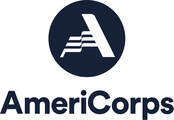|
The Preservation Alliance of West Virginia is seeking dynamic individuals to fill vacancies in its board of directors, which is comprised of four officers and three individuals from each of the three Congressional district in the state. Current vacancies are in the second and third Congressional districts with others expected in 2017.
Directors must live in their respective Congressional district and are expected to attend the organization’s four quarterly meetings statewide, as well as attend its annual events. Other programming and fundraising responsibilities are asked of directors as they build an understanding of the organization. Directors serve for periods of two or three years with opportunities for renewal for a second term. If you are interested in serving on the Board of Directors, please complete the application and return it to [email protected]. The application can be dowloaded as a .doc file: PAWV Board_Application Trowbridge named Whiting Public Engagement Fellow; foundation to provide $50,000 toward development of free heritage tourism app
Dr. David Trowbridge, an associate professor of history at Marshall University, has been selected for The Whiting Foundation’s Whiting Public Engagement Fellowship. Trowbridge said the $50,000 fellowship will be used to further develop Clio, a free mobile application and website that connects the public with information about historical and cultural sites around the United States. “I hope that Clio’s growth throughout West Virginia and beyond demonstrates the potential of technology created by university faculty at regional universities like Marshall,” Trowbridge said. “While Clio is free and non-commercial, it offers the potential for economic development—especially in a state such as ours that is working to promote tourism.” Since Trowbridge created Clio in 2012, it has grown into a national resource with more than 20,000 users a month and 10,000 curated entries. The Whiting Foundation supports faculty in the humanities who embrace public engagement as part of the scholarly vocation, according to Executive Director Daniel Reid. “Dr. Trowbridge is the perfect example of what we’re looking for,” said Reid. “His project is one that is thoughtfully designed to reach the public with deep and meaningful content. The fact that he built this starting with his own personal time and funds is inspiring.” Trowbridge said developers are working to expand Clio’s functionality to include features such as personalized itineraries that offer walking and driving tours. “Until now, mobile apps offered walking tours that required people to start and stop at a preset location and follow a preset route. Thanks to the generosity of the Whiting Foundation and the talented team of developers at Strictly Business Computer Services, Clio will change that,” Trowbridge said. “Together with original content from hundreds of universities, libraries, historical societies, and other organizations, Clio will allow people to experience history as they enjoy a walk through any city in America.” For more information about Clio, visit www.theclio.com. Originally posted on http://www.marshall.edu/ucomm/2016/04/19/marshall-faculty-member-named-whiting-public-engagement-fellow-foundation-to-provide-50000-toward-development-of-free-heritage-tourism-app/ The Preservation Alliance of West Virginia (PAWV) released its newest technical how-to video demonstrating a step-by-step guide in mothballing historic properties. Mothballing is the process of creating a ventilated envelope around a building to preserve the structure until it can be restored. This technique is frequently used for historic properties where funding is not available to immediately rehabilitate it. It is a valuable tool for dealing with vacant and dilapidated properties because it buys the owner time in protecting the building from vandals and weather until funds can be raised to rehabilitate it. This video includes a materials list and step-by-step instructions on how to build window and door panels that when applied, result in minimal damage to wood frames. It was developed according to the National Park Service’s standards listed in their Preservation Brief 31. The video is available on the Alliance’s YouTube channel at www.youtube.com/preservationalliance.
This video was produced using mini-grant funds from the WV Humanities Council. It was produced in partnership with Winding Gulf Restoration Organization (WeGROw) and Liberty High School’s Fine Arts Program. Liberty High School’s Fine Arts Program students were involved in every step of the creation of this video as part of a class project. Mr. Everett Jeremy Rodriguez and students Tyler Carden and Brian Jarrell filmed and edited this video as a volunteer project. The mothballing video builds upon another video released last year, entitled “Preserving and Restoring the Helen Apartments.” This video will also supplement past Preservation Alliance videos, including videos on how to rehabilitate your historic wooden windows and how to assess your historic structure. For assistance in mothballing your historic property, contact Lynn Stasick at [email protected]. PAWV released its Request for Proposals for a Historic Preservation Revolving Loan Fund Program Feasibility Study. All proposals are due Friday, May 20, 2016 with the award date scheduled for Friday, June 3. Thank you the 1772 Foundation for providing funding for this project.
The complete request for proposals is available below: REQUEST FOR PROPOSALS: HISTORIC PRESERVATION REVOLVING LOAN FUND PROGRAM FEASIBILITY STUDY April 19, 2016 – Preservation Alliance of West Virginia Organizational Overview Formed in 1982, the Preservation Alliance of West Virginia (PAWV) is the only statewide, grassroots, nonprofit organization dedicated to the preservation of the Mountain State’s cultural heritage. PAWV’s formal mission is, “With a commitment to preserve our unique cultural heritage, PAWV and its members work to save our past for the present and future, supporting and promoting historic preservation through education & outreach, advocacy, preservation tools, and heritage tourism.” The website is www.pawv.org and blog is https://preservationallliancewv.wordpress.com/. Submission Deadline 5:00 p.m. EST on Friday, May 20, 2016. Responses may be submitted electronically via email to [email protected] or by letter to 421 Davis Avenue, Elkins, WV 26241. Scope of Work Goals A completed feasibility study answering the following questions (at a minimum):
Scope of Work
Required Deliverables A written report of research data and a completed feasibility study with recommendations (both presented in one hard copy and one digital copy format). Assumptions and Agreements
Required Proposal Format The proposal must contain the following sections: Technical, Costs, Qualifications, and References.
Deadlines Questions from bidders must be submitted by email to project coordinator by Monday, May 9, by 5:00 p.m. EST. All relevant questions and responses will be compiled and emailed to all known bidders by Friday, May 13. Proposal must be date- and time-stamped by 5:00 p.m. EST on Friday, May 20, 2016. Project coordinator and point-of-contact Danielle LaPresta: [email protected], 304-345-6005 Preservation Alliance of West Virginia, 421 Davis Avenue, Elkins, WV 26241 Basis for Award of Contract
Award Date: Friday, June 3, 2016 Limitation This RFP does not commit PAWV to award a contract or to pay costs incurred by bidder in the preparation of a proposal to this RFP. PAWV may accept other than the lowest bid, waive minor informalities, and award a contract based only on the written proposal without any discussions with bidder. Issuance of a contract will be subject to the approval of the PAWV Board of Directors. PAWV reserves the right to reject any or all proposals because of non-responsiveness to RFP requirements, insufficient PAWV funds, evidence of unfair bidding procedures, financial insolvency of bidder, or if, in the opinion of PAWV’s Executive Director, the best interests of the program will be served. This is a reminder that proposals for the PAWV 2016 Conference are due April 25. Here is the full request for proposals.
Preservation Alliance of West Virginia is currently accepting proposals for its next statewide historic preservation conference, scheduled for September 22-24, 2016. It will be held primarily in Beverly, with some opportunity for programming in the immediate Randolph County vicinity (Elkins, etc.). This year’s conference theme will be This Place Matters: Connecting with Historic Places. Conference proposals should relate to the theme and fit into at least one of three tracks:
This is a request for knowledgeable professionals willing to lead one or more of the following: Keynote speeches Plenary speeches Half- or full-day workshops Educational walking or driving tours Educational sessions Round-table discussions Panel presentations Student/AmeriCorps poster session For more information on each of these positions, necessary qualifications, and applications, please see the guidelines below. Here is a downloadable version of the PAWV conference RFP 2016 Submit proposals via email to [email protected] by April 25, 2016. For more information, please contact PAWV’s Executive Director, Danielle LaPresta Parker, at [email protected] or 304-345-6005. This RFP does not indicate any promise to follow through and implement any proposals. We reserve the right to select different trainers for workshops, sessions, etc. We reserve the right to accept late proposals if insufficient or inadequate proposals for all slots are not received by the deadline. We may suggest revisions to your proposals for your consideration. PAWV staff will organize and direct all events and will have final approval of content. This conference will be funded in part with federal funds from the National Park Service, Department of the Interior and the WV Division of Culture & History, State Historic Preservation Office. Regulations of the U.S. Department of the Interior strictly prohibit unlawful discrimination in departmental Federally Assisted Programs on the basis of race, color, national origin, age or handicap. Any person who believes he or she has been discriminated against in any program, activity, or facility operated by a recipient of Federal assistance should write to: Office of Equal Opportunity, National Park Service, 1201 Eye Street, NW (2740), Washington, DC 20005. Proposal Application Requirements: Professionals interested in providing preservation training for any of the above formats — speeches, workshops, keynote speakers, educational sessions, roundtables, panel discussions, poster sessions, and/or educational tours — should submit a proposal including:
Presenters will be offered free admission to the conference for the day (excluding banquet) of their presentation, plus the volunteer-discount rate to attend the rest of the conference. Presenter fees, when paid, will be negotiated on a case by case basis. Presenter fees may be offered to major speakers, with smaller amounts offered to panel participants and additional presenters if funds are available. No separate travel expenses will be paid. Positions Available: Plenary and keynote speakers We are seeking one plenary speaker and two keynote speakers for the following: A 15-30 minute plenary speech on local history or preservation – or on one of the conference themes/tracks – for an opening session directly following Friday’s lunch; A 30-45 minute keynote speech related to the conference theme or one of the conference theme/tracks for the awards banquet on Friday evening; A 30-45 minute keynote speech related to the conference theme or one of the conference theme/tracks for the luncheon on Saturday afternoon. Workshop leader Trades workshops are best held at a historic property, with hands-on work performed on the property as part of the workshop. Some workshops may include a classroom component or may be intensive training on a focused topic. Occasionally, other formats – such as a longer training period, or combining multiple skills in one workshop – may be offered. These workshops can be either a half or a full day. Trainers should have extensive experience in the specific skill, thorough familiarity with historic preservation issues regarding that skill, and experience in teaching the skill. Trainers are encouraged to bring additional hand tools for students’ use for hands-on practice. Seminar, panel, or round-table type workshops related to one of the tracks could also be considered for workshop topics or presentations more appropriate to a longer format than the 75 minute educational sessions. Educational speakers Educational speakers will lead 75 minute sessions related to one of the tracks. Each session will most likely be held in an educational breakout room at a specific site. Conference participants will have the option of attending various sessions throughout the three-day period. Speakers should have extensive experience in the specific topic, thorough familiarity with historic preservation issues regarding that topic, and/or experience in teaching the topic. Round-table leaders The round-table discussions, which should be related to one of the tracks, will be 75 minutes long and will be located in a specific educational breakout room. Leaders of round-table discussions must have widespread knowledge and experience working with the specific topic. Leaders will be available to discuss and answer questions asked by conference participants regarding the discussion topic, as well as to encourage constructive input and sharing of experiences by the participants. Panel presenters and moderators The leaders/moderators of panels related to one of the tracks will assemble 2 or 3 panel presenters to each give a short presentation related to the same theme, followed by discussion led by the moderator. The names, contact information, and qualifications of each panel participant should be included in the proposal. Panels last 75 minutes and will be held in a specific educational breakout room. Tour guides (walking or driving) Walking tours generally run from 1 ½ to 3 hours. Driving tours may be a half-day or longer. Guides must have pervasive knowledge of the historic structures and properties described on the tour. PAWV requests that tour guides be knowledgeable not only in the historic uses of the buildings, but also in the methods, strategies, and/or technologies used during the preservation, adaptive reuse, etc., of the structures/sites. The primary focus of the tour should be related to historic preservation, the conference theme, and/or one of the conference tracks; however, PAWV encourages tours to also share aspects of local history. Poster session The poster session will include the presentation of research or a historic preservation project by an individual (typically a student or AmeriCorps member) or by representatives of a project team. Posters will be displayed in an exhibitor hall, and presenters will accompany their posters – illustrating their research methods or project scope and outcomes. The posters will be displayed during the entire conference, but the poster presentation session will be held over a period of one hour on Friday or Saturday of the conference. Three Conference Tracks: Conference attendees can choose to attend workshops and educational sessions related to three conference tracks, which focus on specific themes common in historic preservation projects and development. By featuring three different tracks, conference attendees can choose the topic that best reflects their interests and gain the most from their experience. Attendees will have the choice of Thursday workshops and tours reflective of track themes, as well as Friday and Saturday concurrent educational sessions. Proposals should be related to one of the following tracks.
Both of these bills would mainly:
(1) allow an increased 30% credit (from the current 20% credit) for small-sized transactions, between $750,000 and $3.75 million; (2) simplifies the tax credit transfer process for projects under $2.5 million. We need your help in asking our Senators and Representatives to co-sponsor this bill and move it forward. Currently, there are no Senators or Representatives from West Virginia co-sponsoring this bill. If you would like to see a list of projects utilizing the historic tax credit, please visit http://www.preservationnation.org/take-action/advocacy-center/additional-resources/historic-tax-credit-maps/2015/WV_map-and-economic-impacts-and-project-lists-from-2001-to-2014.pdf. How can you help? Please contact your Senators and Representative today. As their constituent, your opinion matters, and these improvements to the tax credit can make more projects viable in West Virginia. It’s as simple as sending an email. They’re contact information is available at http://www.contactingthecongress.org/cgi-bin/newseek.cgi?site=ctc2011&state=wv. All you need to do is complete a contact form asking them to co-sponsor either HR3846 or S2655. If you want to send something more substantial, here is a sample letter. Dear xxx, As a constituent who values the preservation of our state’s rich and diverse heritage, we respectfully request that you co-sponsor the Historic Tax Credit Improvement Act, S. 2655 / H.R. 3846. Your support of this legislation will demonstrate our nation’s ongoing commitment to federal tax policies that help revitalize our economy and preserve Main Street communities throughout the nation. The Historic Tax Credit Improvement Act, H.R. 3846 / S. 2655, introduced in the House by Congressman Mike Kelly (R-PA) and Congressman Earl Blumenauer (D-OR) and in the Senate by Senator Ben Cardin (D-MD) and Senator Susan Collins (R-ME), would reform the federal rehabilitation tax credit for the first time in thirty years in several important ways by:
Since President Reagan signed the federal historic tax credit into law, it has leveraged nearly $117 billion in private investment, created 2.5 million jobs and adapted more than 41,250 buildings for new and productive uses. And the credit more than pays for itself – over the life of the program the IRS has issued $24 billion in tax credits while generating more than $28.6 billion in direct federal tax revenue. Today, it is the most significant investment the federal government makes to preserve our nation’s historic properties. From 2001 – 2014, the Internal Revenue Service awarded almost $28 million in federal historic tax credits to projects in West Virginia, resulting in the completion of 85 projects statewide and nearly $168 million in total development expenditures. For these 85 projects, 3,366 jobs were created, and $34 million in federal, state, and local taxes were generated. Over this thirteen year period, projects were very frequently completed in historic downtowns and for various purposes including downtown development, housing, entertainment, office space, and more. Some of the more recognizable projects include the Quarrier Diner restaurant building in Charleston, the First Ward School Apartment Building in Elkins, the Ritz Theatre in Hinton, the Old JC Penny Building in Huntington that is now home to the Taste of Asia, the Morgantown Beauty College building, and many more. Please consider signing on as a co-sponsor to the Historic Tax Credit Improvement Act, S. 2655 / H.R. 3846. As always, we look forward to continuing our collaborative work with Congress, preservation and partner organizations, business leaders, and individuals working to recognize the value of the historic tax credit, and its role in improving the quality of life in cities and towns across the nation. Your support of the Historic Tax Credit Improvement Act is greatly appreciated. Please let us know what information we may provide to help ensure the federal historic tax credit continues our nation’s successful policy of preserving and revitalizing our older and historic communities. Sincerely,
The Lowe’s Charitable and Educational Foundation has a grant opportunity available to communities primarily focused on community investment projects and public education.
The Lowe’s Community Partners grant program helps build better communities by providing monetary assistance to nonprofit organizations and municipalities looking for support of high-need projects such as: building renovations/upgrades, grounds improvements, technology upgrades as well as safety improvements. Grants range from $2,001 to $100,000, with most projects falling between $10,000 and $25,000. The Lowe’s Heroes employee volunteer program is another opportunity for support, which Lowe’s can provide to some grant recipients to help supplement the labor of projects. Applicants — speak to your local store manager to see if this is a possibility before applying. The Community Partners 2016 cycle dates are: Spring: March 21, 2016 – May 23, 2016 Fall: July 1, 2016 – August 26, 2016 You can only apply for a grant during the cycle dates. During this time the application will become available. Click here to apply. Here are the giving guidelines, and Lowe’s also offers an FAQ. The boards of directors for Wheeling National Heritage Area Corporation(WNHAC) and Reinvent Wheeling are pleased to announce a merger of the organizations, a natural progression as the organizations work together to increase their community and economic impact through historic preservation and economic revitalization efforts. Under the merger approved by both boards, the organizations will become known as Wheeling Heritage and be governed by a 23-member merged board. Reinvent Wheeling will retain its name and identity, serving as Wheeling Heritage’s arm to help shape Downtown’s revitalization. Projects undertaken by both entities will continue as the merged organization continues its plans to activate the community in more initiatives.
Arch W. Riley, Jr., chairman of the Wheeling Heritage board stated, “Individuals, families, entrepreneurs and even corporations want to live, work and play in a community steeped in a rich history. Ensuring that we’re leveraging the development opportunities that our rich history provides, WHNAC encouraged the creation of Reinvent Wheeling in 2009. We’ve been working closely with the group for several years and our merger will not only improve our operations, but will work to engage more stakeholders and residents in the myriad projects under way.” “This merger is a natural next step in the positive relationship that we’ve developed,” said Jake Dougherty, Director of Reinvent Wheeling. “For over 20 years, WHNAC has made significant strides in affecting Wheeling’s economic development through meaningful preservation of Downtown structures and new buildings and entertainment venues. We’re thrilled to continue – and even bolster this work – and have big ideas when it comes to engaging more homeowners and residents.” The merger will bring operational efficiencies that include eliminating duplicative expenses, such as accounting and employee insurance costs. Combined, the organization has four full-time employees and two AmeriCorps members. “Development and heritage go hand in hand as we look toward a future that further embraces Wheeling’s history,” said Jeanne Finstein, Interim Director of Wheeling Heritage. “By merging, we can supplement the efforts of each group with new ideas and energy.” Top initiatives include heritage-focused economic development at the core of the city, restoration of Mt. Wood Cemetery, and renovation of the 1837 Blue Church in East Wheeling. Other key initiatives include: building analyses of historic properties and “preservation” assistance for owners; small business/entrepreneurship assistance; collections of archival materials; the awarding of mini-grants; and an effort to establish a Wheeling Museum. Reinvent Wheeling will continue regular successful events such as Show of Hands, which uses crowdfunding to foster entrepreneurism and has awarded more than $18,000 to projects as a result of eight events. For-profit and nonprofit groups can apply for the micro-grants from a Show of Hands and present a four-minute pitch to the crowd, which votes on projects to fund. Other community initiatives that have spurred social engagement include Big Ideas, Small Business Promotion and Workshops, and Public Space Development. “It’s a great time to be living and working in Wheeling, and we think anyone who wants to can play a role in revitalization projects and benefit from the changes,” said Riley. http://us9.campaign-archive1.com/?u=7d3caf4e57d068cc73a9d6431&id=72b4206769&e=278fd6e927
Applicant will be expected to provide tours to the public and develop museum interpretation for both permanent and temporary exhibits. A master’s degree in public history, museum studies, history or a related field is suggested.
Resume should be mailed to: MCHS P.O. Box 267 Moundsville, WV 26041 |
News and NotesCategories
All
Archives
May 2024
Subscribe to our mailing list to receive e-news updates on historic preservation news and events in West Virginia.
|
Get Involved |
Programs |
Contact UsPreservation Alliance of West Virginia
421 Davis Avenue, #4 | Elkins, WV 26241 Email: [email protected] Phone: 304-345-6005 |
Organizational Partners:
© COPYRIGHT 2022 - PRESERVATION ALLIANCE OF WEST VIRGINIA. ALL RIGHTS RESERVED.

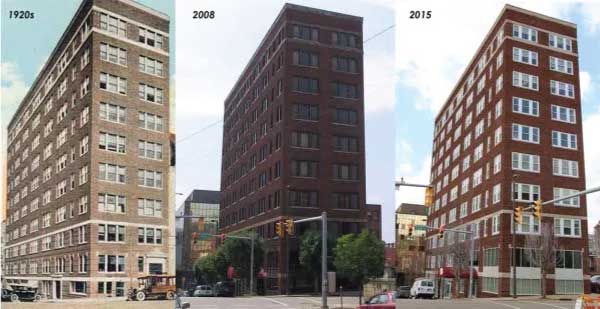
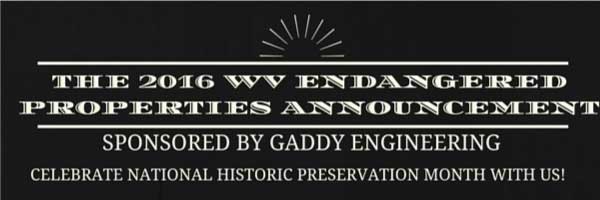
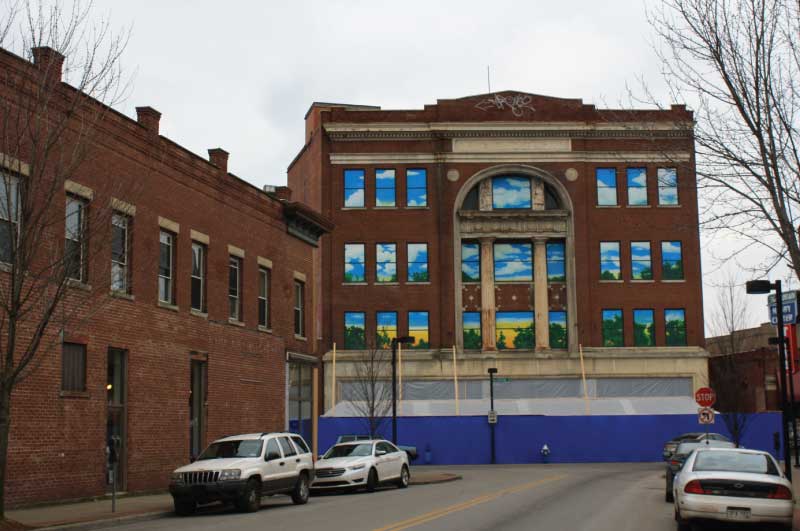
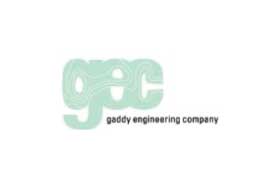
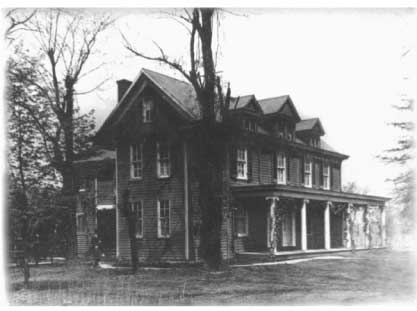
 RSS Feed
RSS Feed

